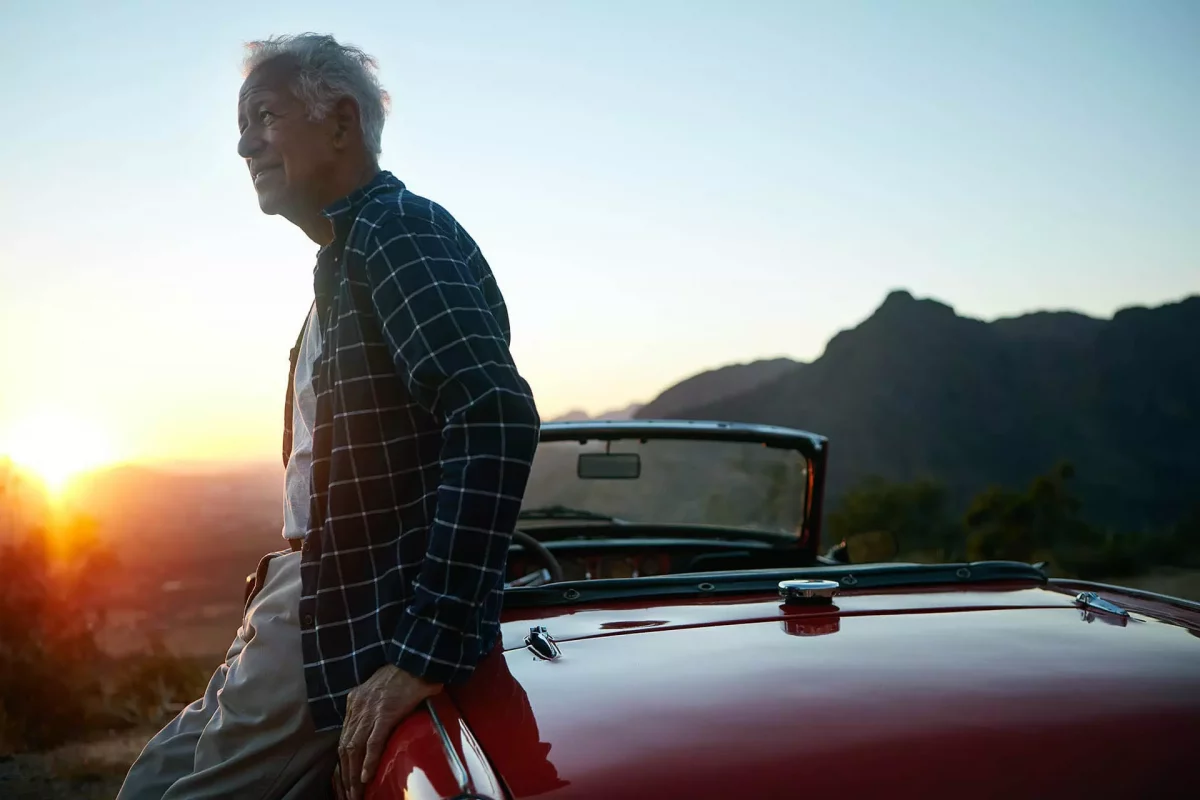Any automobile that you drive requires insurance. But your classic car is your own “baby.” Most classic cars aren’t driven the way more utilitarian vehicles are, and the value is often vastly different. That means some of the requirements for personal auto insurance coverage for your classic car are different, too.
Here’s what you need to know about classic car insurance, so your automobile is protected the way you need it to be.
What Is a Classic Car?
Classic, antique, and vintage cars all have different definitions. In addition, the requirements of each can vary from state to state. (Be sure to check your state’s requirements to find out whether your car qualifies as “classic.”)
However, in general, the criteria for each are:
- Classic car: Usually includes vintage, antique, or collector vehicles from 10 to 25 years old.
- Antique car: Usually includes vehicles 25 to 45 years old.
- Vintage car: Usually includes automobiles manufactured between 1919 and 1930.
Why Is Insurance Different for a Classic Car?
Insurance on a car that is not considered classic, antique, or vintage is configured based on the age of the vehicle, the mileage, depreciation, and whether you currently have a loan on the car.
However, classic automobile coverage should provide adequate protection that includes the costs of restoration and customization. These costs, including the need for specialized mechanics or garages for upkeep of your classic vehicle, can mean you’re left with some hefty bills if your coverage isn’t enough.
What Your Classic Car Insurance Covers
At minimum, your classic auto insurance should cover:
- Liability car insurance: If you’re in an accident in your classic car, liability insurance covers personal damage to the other driver/passenger(s), plus legal costs if you are sued. Most states require liability insurance if you will be driving your classic car on public roads.
- Comprehensive and collision insurance: These cover a broad range of possible issues, including damage to your car in case of an accident, vandalism, theft, fire, flood, falling objects, riots, and collision with animals.
- Uninsured motorist coverage: If you’re in an accident and the other driver does not have insurance, uninsured motorist coverage helps take care of the medical bills you incur.
What Does Your Classic Car Insurance Agent Take Into Consideration?
Your auto insurer should consider the following when determining your classic auto coverage:
- The car’s value. While standard vehicles depreciate, a classic car will have a different value due to its status as a classic, as well as its condition and any modifications. You and your insurer can determine the value of your vehicle.
- The cost of replacement parts. Parts will often be more expensive on classic vehicles due to scarcity and/or the need to import parts.
- Repairs — a specialist may need to repair your classic car, which means the cost may be more than for a non-classic vehicle.
- Special coverage if you plan to drive your car to events, rather than having it towed.
How Much Does Classic Car Insurance Cost?
The cost of your classic car coverage will vary depending on several factors. Make sure to discuss all of these with your auto insurance specialist:
- The total miles you plan to drive your classic car annually
- The age of your vehicle
- The condition of your vehicle
- Vehicle modifications
- Cost of repairs
- Cost of upkeep
Do Replica Cars Require Classic Car Insurance?
A replica car’s value will be different because it is not an actual classic, antique, or vintage automobile. Discuss this coverage separately with your auto insurer.
What if You Don’t Drive Your Classic Car?
Whether you tow your car to shows or keep it in your garage, parts will deteriorate over time. You may also wish to make modifications in the future. In addition, you may have damage to your car even if you do not drive it; for instance, at a car show.
This means you will need insurance on your classic automobile even if you don’t plan to drive it. Discuss your options with your insurance agent.
What Types of Vehicles Are Covered By Classic Auto Insurance?
It’s not just cars that are classics, as any classic vehicle aficionado knows. Classic vehicles can be found in any of these categories:
- Cars
- Trucks
- Tractors
- Military vehicles
- Exotic vehicles
- Modified vehicles (including hot rods and lowriders)
- Retired fire trucks and other retired commercial vehicles
- Motorcycles
- Scooters
- Race cars
- Muscle cars
Can You Use Your Classic Car for Other Activities?
Usually, classic cars are insured assuming “limited use” of the vehicle, such as driving to car shows.
You may need different insurance if you use your classic car for:
- Regular use such as driving the car to work
- Off-road or recreational activities
- Commercial use of the vehicle
Storage Requirements for Your Classic Car
Depending on various factors, the terms of your classic auto insurance may require you to store your classic car under specific conditions.
For example, you may be required to store your classic vehicle in a storage facility or a locked garage.
Ask your insurance agent what the storage terms are for your classic car insurance to be active.
Insuring Your Classic Car Is Important
Your classic automobile is important to you. Don’t let an accident or pricey restorations keep you from enjoying your investment. Make sure you’re covered for accidents, wear and tear, and restorations on your classic car so you’ll be proud to drive it for a lifetime.








